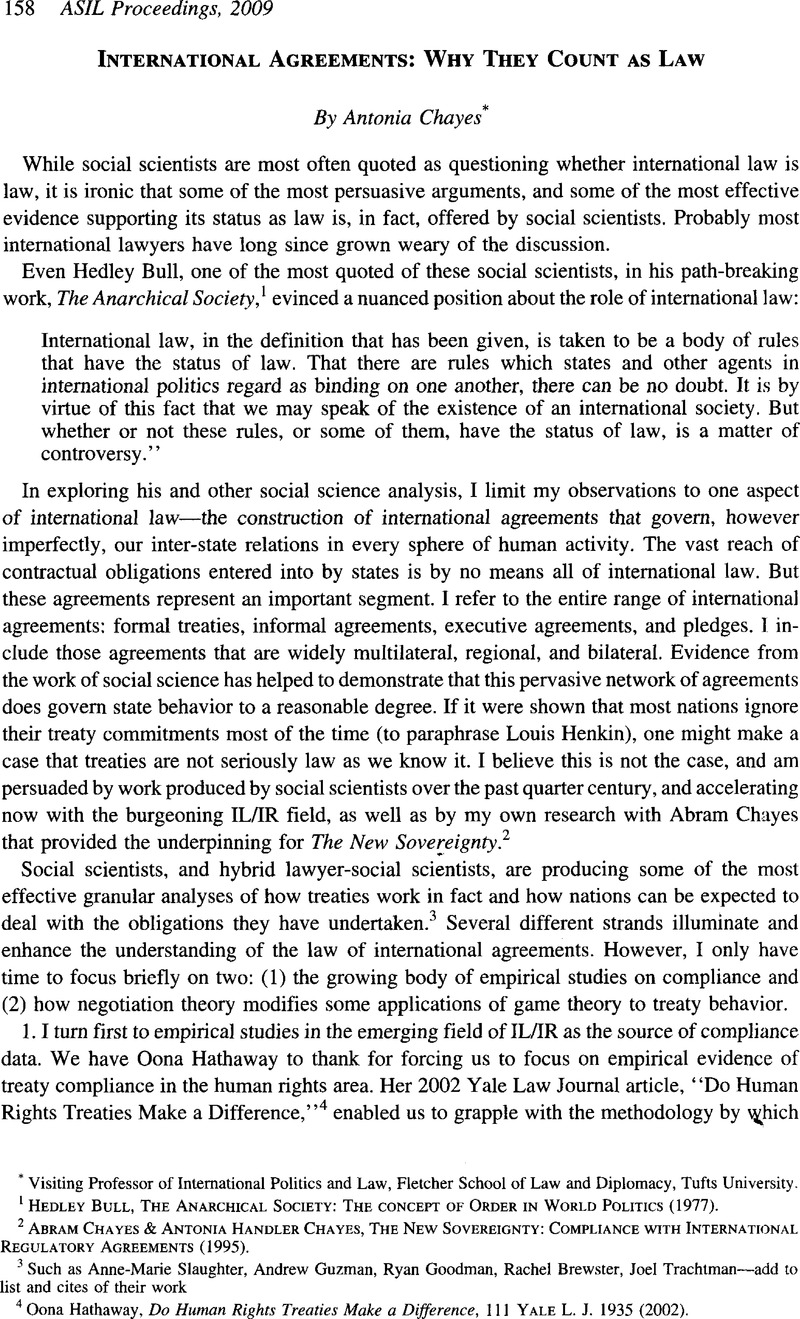No CrossRef data available.
Article contents
International Agreements: Why they Count as Law
Published online by Cambridge University Press: 28 February 2017
Abstract

- Type
- In What Sense is International Law Law?
- Information
- Copyright
- Copyright © American Society of International Law 2009
References
1 Bull, Hedley, The Anarchical Society: The Concept of Order in World Politics (1977)CrossRefGoogle Scholar.
2 Abram Chayes & Antonia Handler Chayes, The New Sovereignty: Compliance With International Regulatory Agreements (1995).
3 Such as Anne-Marie Slaughter, Andrew Guzman, Ryan Goodman, Rachel Brewster, Joel Trachtman—add to list and cites of their work
4 Hathaway, Oona, Do Human Rights Treaties Make a Difference, 111 Yale L. J. 1935 (2002)CrossRefGoogle Scholar.
5 Simmons, Beth, Mobilizing for Human Rights: International Law in Domestic Politics (2009)CrossRefGoogle Scholar.
6 Engaging Countries: Strengthening Compliance With International Accords (Harold K. Jacobson & Edith Brown Weiss eds., 1996). The book has case studies of eight countries (Brazil, Cameroon, China, Hungary, India, Japan, the Russian Federation, and the United States) and the European Union and examines fivejnajor accords: the UNESCO Convention for the Protection of the World Cultural and Natural Heritage (1972), the International Maritime Convention on the Prevention of Marine Pollution by Dumping of Wastes and Other Matters (1972), the Convention on International Trade in Endangered Species (1973), the International Tropical Timber Agreement (1983), and the Montreal Protocol on Substances that Deplete the Ozone Layer (1987).
7 Downs, George, Rocke, David, & Barsoom, Peter, Is the Good News About Compliance Good News about Cooperation?, 50 Int’l Org. (3), 379-406 (1996)CrossRefGoogle Scholar.
8 Putman, Robert D. Diplomacy Domestic Politics: The Logic of Two-Level Games, 42 Int’l Org. (3), 427-60 (1988)Google Scholar.
9 Id.
10 James K. Sebenius, Negotiating the Law of the Sea (1984).
11 Strategies alter with repeated games, as Axelrod pointed out in 1984. If parties do engage in a cost-benefit analysis, their winning strategy must change in light of the expectation of multiple games with the same parties. and international life is filled with such repetition. As for expected “punishment”—we now begin to realize that “punishment” not only consists of treaty-based sanctions but a wide range of subtler enforcement measures, such as dispute resolution mechanisms. Andrew Guzman’s work on reputation has helped this process develop. The sharp differential between our “managerial” school of compliance and the “enforcement” school has begun to erode.


